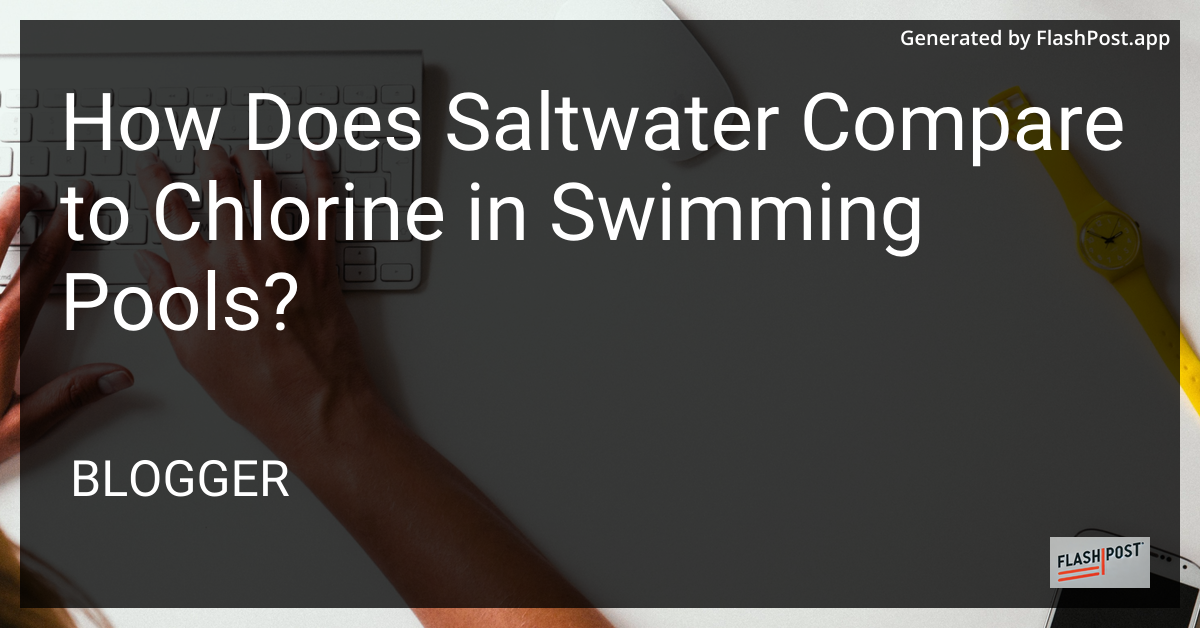How Does Saltwater Compare to Chlorine in Swimming Pools?

How Does Saltwater Compare to Chlorine in Swimming Pools?
Swimming pools are a fantastic addition to any property, offering relaxation and a perfect way to enjoy the outdoors. One of the key decisions pool owners face is choosing between a saltwater and a chlorine pool. Understanding the differences can help you make an informed decision about what’s best for maintaining your pool and ensuring the health of its users.
What Is a Saltwater Pool?
A saltwater pool uses a salt chlorine generator to convert salt into chlorine, which helps to keep the water clean. This type of pool requires significantly less manual addition of traditional chlorine, which can be a plus for those sensitive to the chemical.
What Is a Chlorine Pool?
A chlorine pool uses direct chemical chlorine to disinfect and maintain water cleanliness. Chlorine is a powerful sanitizer and can be manually added in several forms, including tablets, granules, or liquid.
Key Differences
Maintenance: Saltwater pools tend to have lower ongoing maintenance needs compared to traditional chlorine pools. The salt generator system automatically generates the required chlorine, whereas a chlorine pool requires regular manual input.
Cost: Initially, a saltwater pool can be more expensive due to the cost of the saltwater generator. However, in the long run, maintenance costs may be lower.
Experience: Many swimmers prefer saltwater pools because they tend to be gentler on the skin, eyes, and hair. On the other hand, chlorine pools can sometimes cause irritation, especially if levels are not monitored correctly.
Equipment Impact: Saltwater can be corrosive over time, potentially impacting certain pool materials, though modern equipment is often built to withstand this. Chlorine can also affect pool components if not properly balanced.
Environmental Impact
Saltwater pools use fewer chemicals than chlorine pools, potentially leading to a reduced environmental footprint. However, the production and disposal of a salt chlorine generator also contribute to environmental impact, which should be considered.
Making Your Decision
When choosing between a saltwater or a chlorine pool, weigh factors such as maintenance commitment, budget, and swimmer sensitivity. Additionally, consider how often you cover your pool to conserve chemicals — learn more about the benefits of covering your swimming pool. If you’re concerned about ongoing costs, investigate options for swimming pool insulation to reduce heat loss and chemical evaporation.
Ultimately, both options can provide a clean and safe swimming environment when managed correctly. Whether you’re investing in a new pool or upgrading an existing one, understanding your personal priorities will help guide your choice for a long-lasting, enjoyable swimming experience.
Comments
Post a Comment